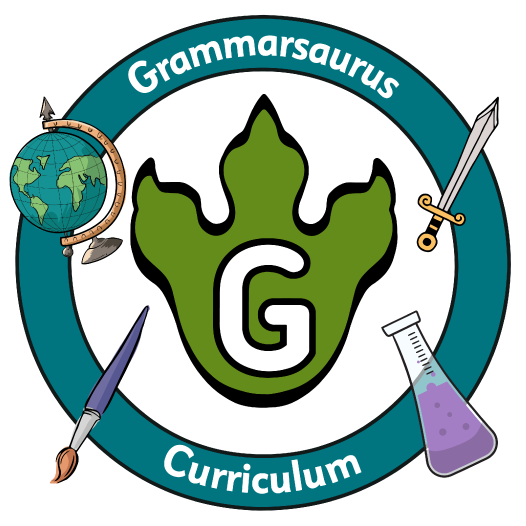
The Grammarsaurus History Curriculum aligns with the English National Curriculum. The themes, concepts, substantive knowledge and historical skills have been mapped to ensure that pupils following our sequence of learning have ample opportunity to make progress in history by knowing and remembering more history content.
Themes
Disciplinary Concepts
Curriculum Aims
- Know and understand the history of these islands as a coherent, chronological narrative from the earliest times to the present day: how people’s lives have shaped this nation and how Britain has influenced and been influenced by the wider world.
- Know and understand significant aspects of the history of the wider world: the nature of ancient civilisations; the expansion and dissolution of empires; characteristic features of past non-European societies; achievements and follies of mankind.
- Gain and deploy a historically grounded understanding of abstract terms such as ‘empire’, ‘civilisation’, ‘parliament’ and ‘peasantry’.
- Understand historical concepts such as continuity and change, cause and consequence, similarity, difference and significance, and use them to make connections, draw contrasts, analyse trends, frame historically valid questions and create their own structured accounts, including written narratives and analyses.
- Understand the methods of historical enquiry, including how evidence is used rigorously to make historical claims, and discern how and why contrasting arguments and interpretations of the past have been constructed.
- Gain historical perspective by placing their growing knowledge into different contexts, understanding the connections between local, regional, national and international history; between cultural, economic, military, political, religious and social history; and between short- and long-term timescales.
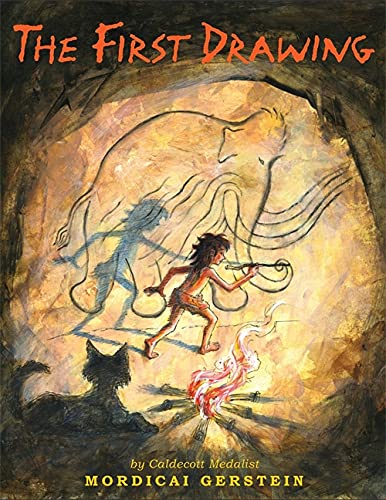
The First Drawing
Author: Mordicai Gerstein
Reading age: Year 2+
Summary:
A brilliant story echoing elements of ‘the boy who cried wolf.’ A young boy who
lives in the Stone Age with all of his family has a wild and vivid imagination that begins to
irritate his family as he tries to tell them of the things he sees, both in his mind and in reality.
One day, he meets a woolly mammoth and his family do not believe a word of it, and can also not
envision what he is trying to describe. The boy jumps up and begins to draw the woolly mammoth and
so he creates the first ever drawing!
Likes:
- A brilliant concept in making children think about the reality of how ideas used to be conveyed and the first time things could have been done, such as drawing.
- A great story for the Stone Age topic as it brings in elements of their lifestyle.
- Told so simply but incredibly effectively.
- Amazing illustrations to accompany the story and bring it to life.
Star rating: 5/5
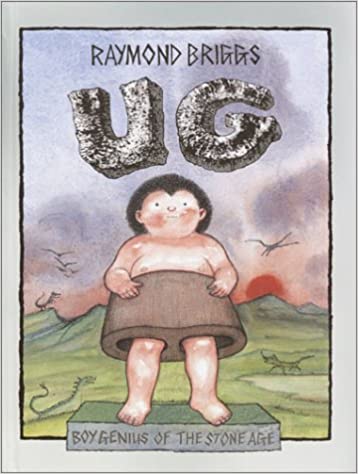
Ug: Boy Genius of the Stone Age
Author: Raymond Briggs
Reading age: Year 3+
Summary:
Ug is one curious and inquisitive child! He lives with his parents in the Stone
Age. They have stone trousers, stone duvets and cold food which Ug thinks could be seriously
improved. Unfortunately, his parents don’t understand his creative and scientific ideas and
creations
- but little do they know, they are in fact revolutionary. Written in a comic strip style, this
brilliant story touches on facts and real-life scenarios from the Stone Age, as well as showcasing
brilliant cartoon illustrations.
Likes:
- Filled with brilliant wit and humour!
- Informative as well as inventive.
- Relatable for children who have lots of questions and are curious.
Star rating: 5/5
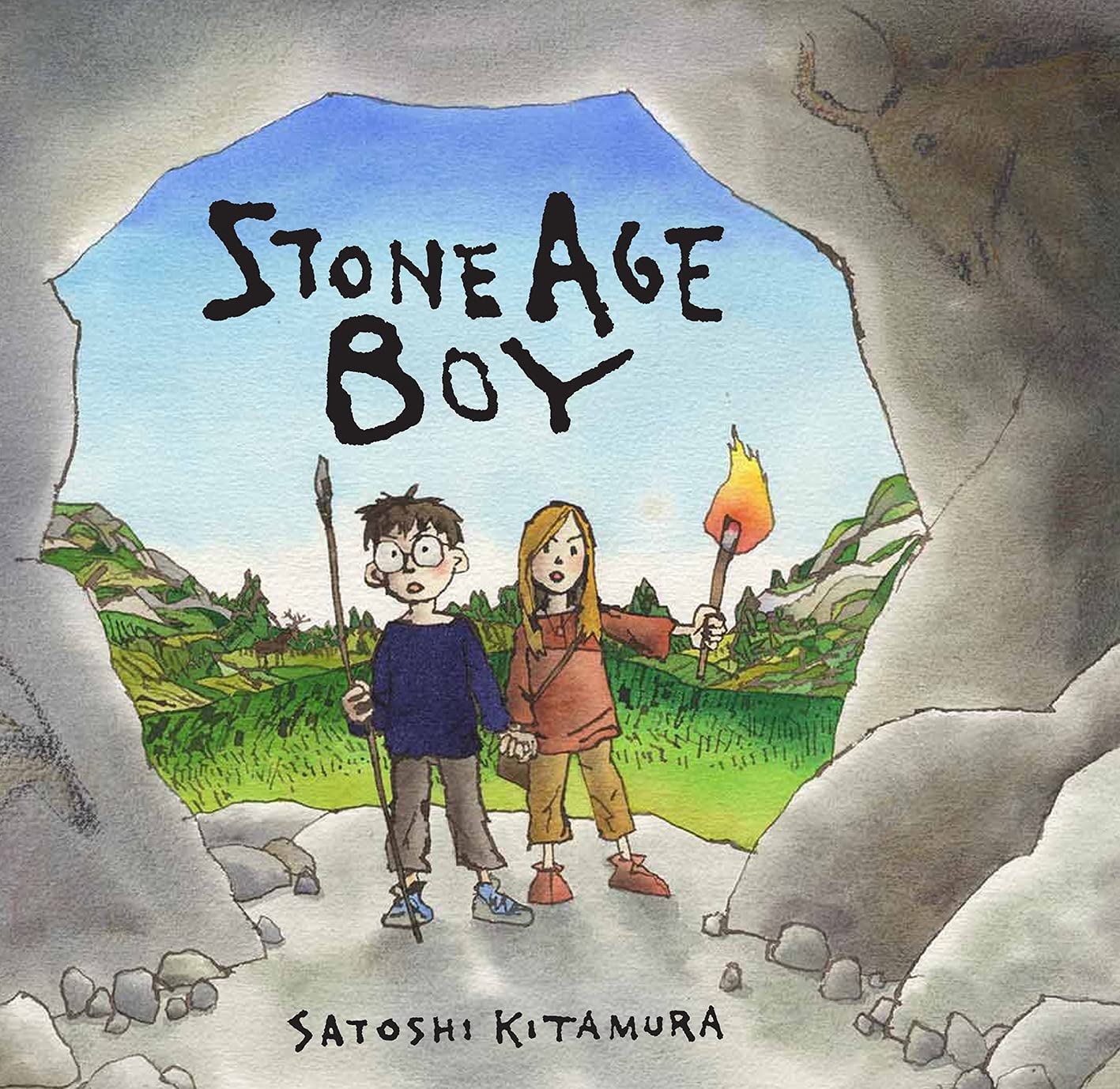
Stone Age Boy
Author: Satoshi Kitamura
Reading age: Year 3+
Summary:
A curious boy is out wandering and finds himself falling down, down, down…
Likes:
- A beautiful story where Jimmy learns a lot about himself and who his real friends are.
- Brilliant humour throughout.
- The element of mystery adds another dimension to the story.
- Shows the feelings of children moving from the city to the countryside as evacuees and how some will have found it to be a shocking and uncomfortable change.
Star rating: 4/5
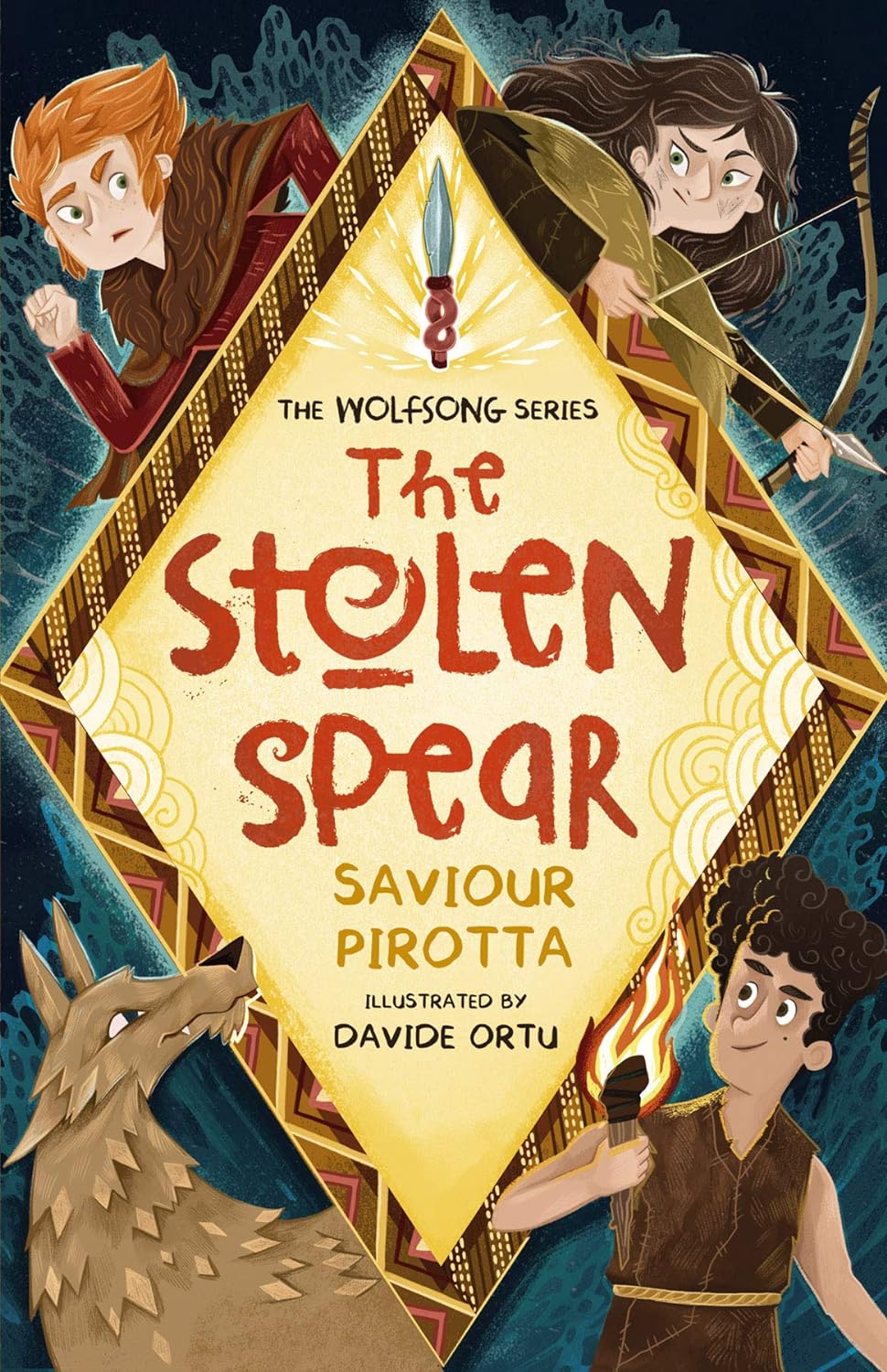
The Stolen Spear
Author: Saviour Pirotta
Reading age: Year 4+
Summary:
Set around the Orkney Islands in Scotland, this story is the first in the
Wolfsong series. Filled with adventure, young boy Wolf sets off on a journey to find a stolen spear,
but Wolf has never left his village before. You are taken on the journey with Wolf, through the eyes
of a child from the Stone Age. Wolf wishes he was strong like his brother, but in fact learns he can
prove himself to the rest of the village.
Likes:
- A simple adventure book ideal for LKS2.
- A great short chapter book filled with illustrations to accompany the text.
- A great insight into life in the Stone Age on the cusp of the Bronze Age.
Star rating: 4/5
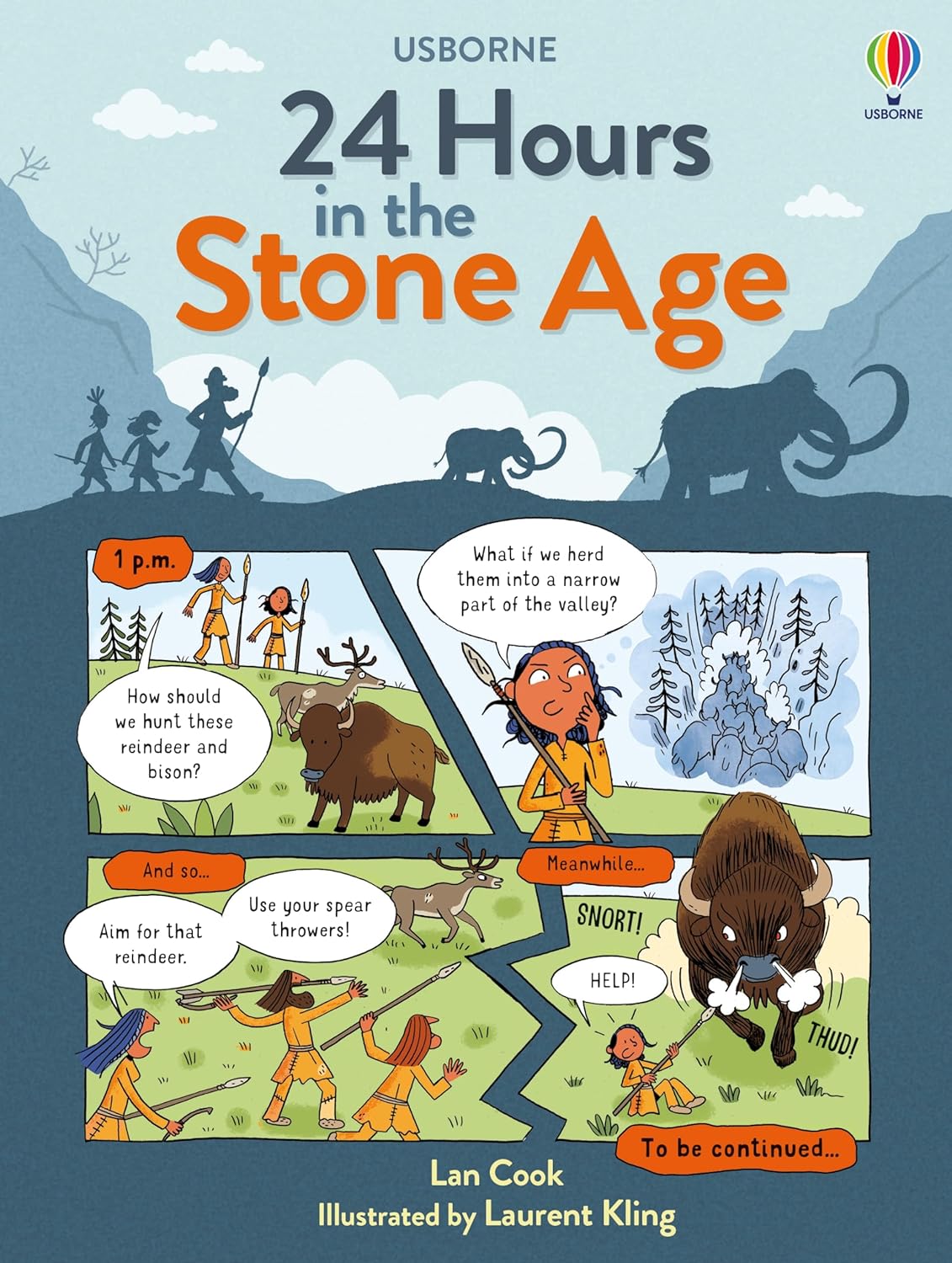
24 Hours in the Stone Age
Author: Lan Cook
Reading age: Year 3
Summary:
A great comic-strip style text combining both fiction and non-fiction all in
one. Spend the day with Auri, a young girl living 20,000 years ago in the Stone Age. Auri gives you
a tour of her home where you meet her friends and family along the way. She teaches you all about
foraging for food, gives you a guide to dangerous animals and hunting, cave painting and even what
they get up to for leisure. It gives a great insight into a ‘typical day’ in the Stone Age.
Likes:
- It covers a variety of interesting parts of people’s lives in the Stone Age.
- There is a brilliant glossary and index at the back to help children navigate and understand the information better.
- The comic-strip style is accessible for younger children and makes the information and story less overwhelming when written in small chunks.
Star rating: 5/5

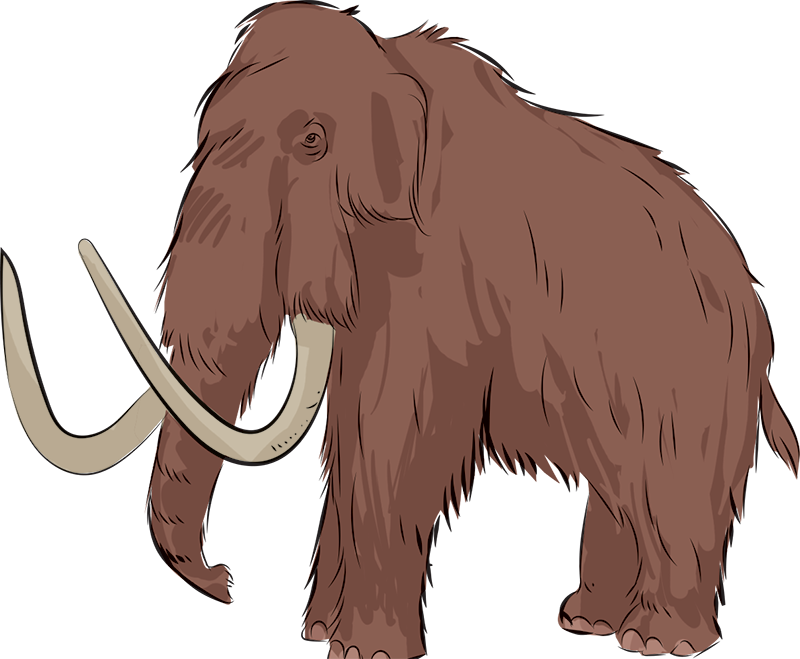

How to wash a woolly mammoth
Write a set of instructions guiding the reader on how to give their pet mammoth a wash and brush up!
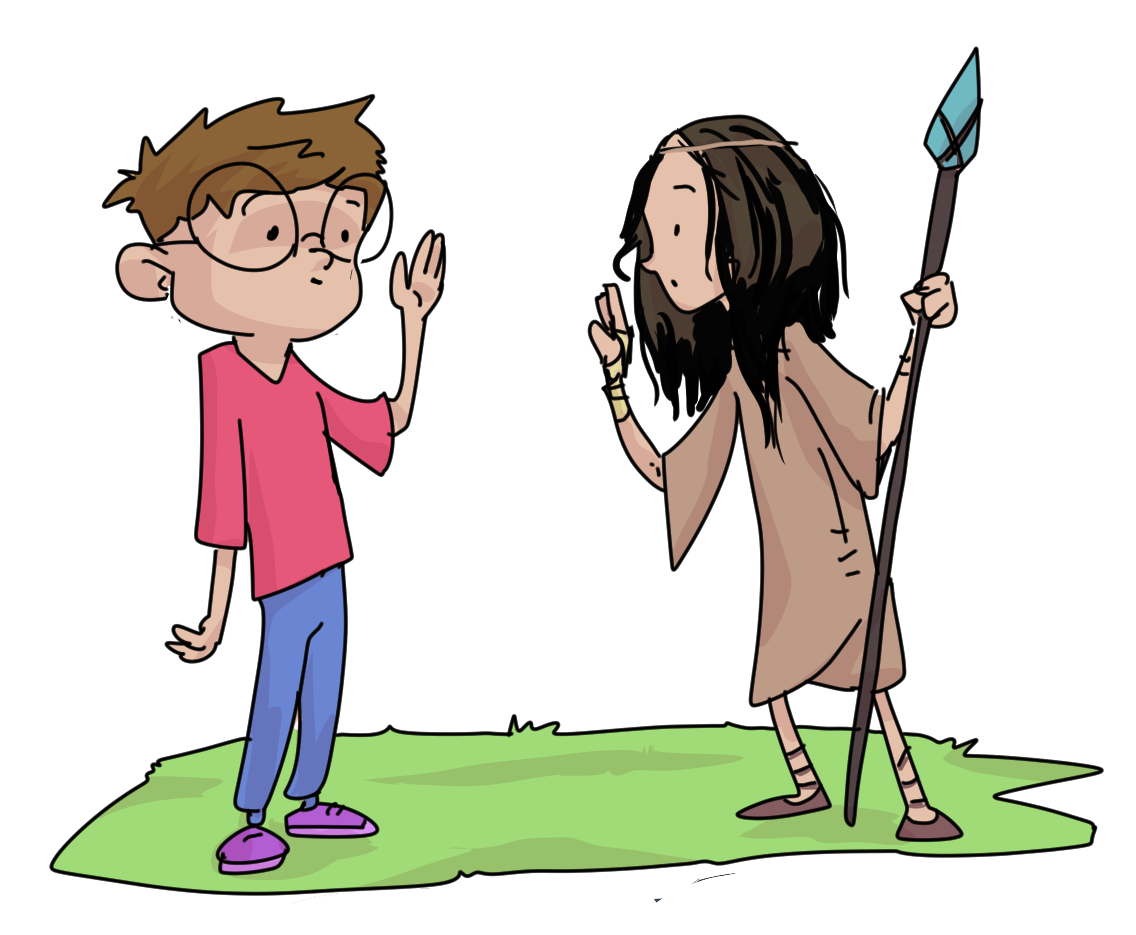

Stone Age Boy
Write a letter back home from a boy who has been transported into the Stone Age!
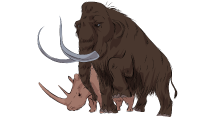

Prehistoric Creatures
Write a report about fascinating prehistoric creatures.



